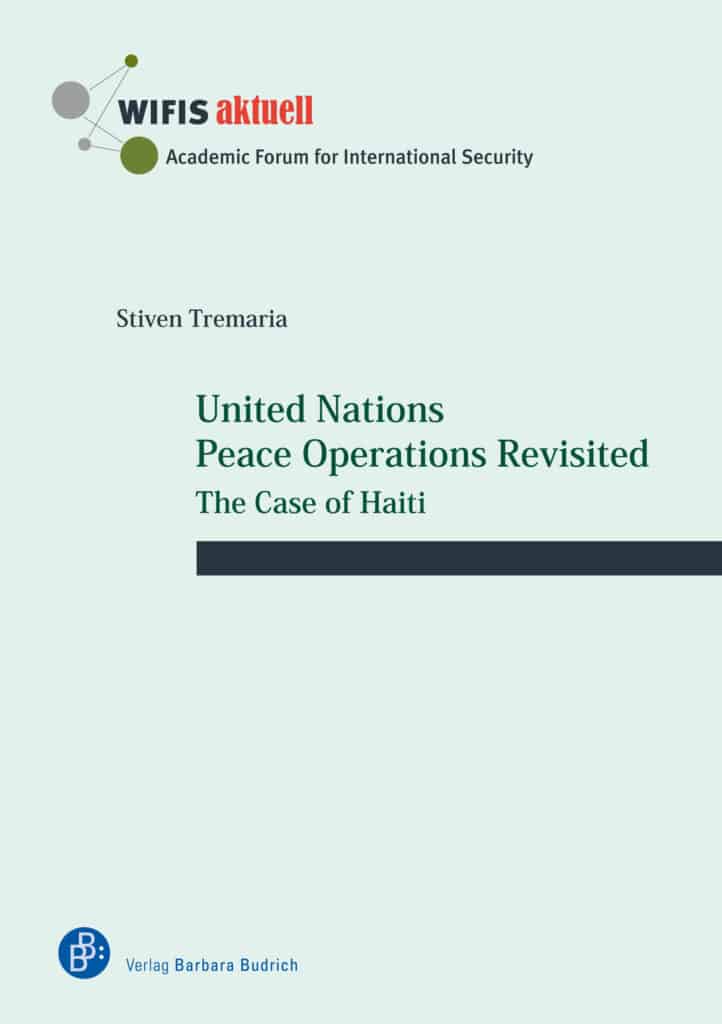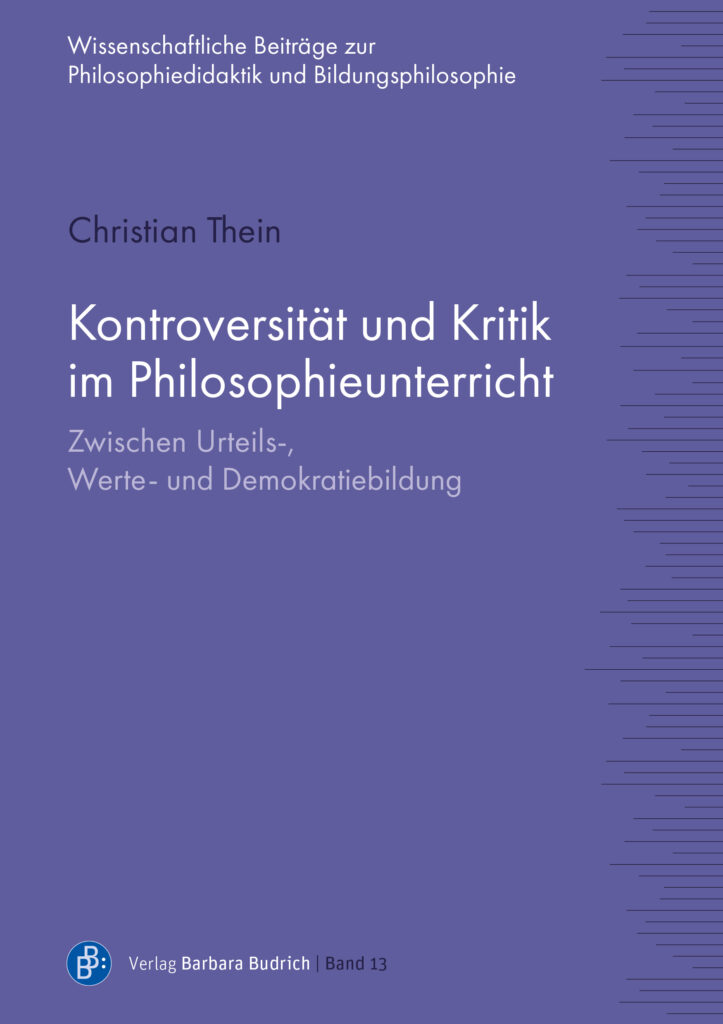Informationen zum Buch
Startseite » Programm » The Non-Linearity of Peace Processes
The Non-Linearity of Peace Processes
Theory and Practice of Systemic Conflict Transformation
Erscheinungsdatum : 30.08.2011
26,99 € - 33,00 €
Beschreibung
This is the first comprehensive publication analysing the value added by integrating systemic thinking and peacebuilding theory and practice. Against the background of different case studies, practitioners and scholars frame their various understandings of systemic thinking and present a great variety of systemic concepts, such as systems theory, systemic action research and constellation work.
Furthermore, this volume links current discussions about peacebuilding with various systemic discourses. It analyses to what extent systemic thinking and systemic methods are helpful in further developing existing approaches to conflict transformation. In addition, most recent debates in the peacebuilding field, e.g. on liberal peace, the relevance of conflict analysis for strategy planning, bridging the attribution gap, the non-linearity of conflict dynamics, etc., are taken aacount of.
The editors:
Daniela Körppen, M.A.
Researcher and Project Coordinator, Berghof Foundation for Peace Support
Dr. Norbert Ropers
Director, Berghof Foundation for Peace Support
Target groups: peace and conflict researchers; NGOs and international organisations working in the peacebuilding field, on conflict transformation, and on humanitarian issues; political and social scientists
Zusätzliche Information
| Verlag | |
|---|---|
| ISBN | 978-3-86649-406-0 |
| Format | B5 |
| Umfang | 273 |
| Erscheinungsjahr | 2011 |
| Erscheinungsdatum | 30.08.2011 |
| Auflage | 1. |
| Sprache | Englisch |
Autor*innen
SchlagwörterConflict Transformation, peacebuilding, Systemic Approach
Rezensionen
In the book, […] authors from varied disciplines apply theoretical and practitioners‘ views to discuss the strength and weaknesses of incorporating systemic thinking into peacebuilding processes.
INTERNATIONAL JOURNAL ON WORLD PEACE 3/2013
Während der erste Teil grundsätzliche theoretische Überlegungen hinsichtlich der Kompatibilität von systemtheoretischem Denken und Friedens- und Konfliktforschung enthält, geht es im zweiten Teil um die praktische Dimension des Problemfeldes. Konkret bedeutet diese Zweiteilung, dass im ersten Teil unterschiedliche theoretische Konzepte aus der soziologischen und der politikwissenschaftlichen Theoriebildung ebenso diskutiert werden wie konstruktivistische bzw. erkenntnistheoretische Ansätze. […] Ein solcher Aufbau birgt grundsätzlich die Gefahr, dass sich Theoriebildung und Empirie voneinander entfernen, was für diesen Band erfreulicherweise jedoch nicht zutrifft.
pw-portal.de, 16.08.2012
The book, based on a project at the Berghof Foundation, outlines many interesting facets of constructivist theory around systemic thinking, complexity theory and action-research in the context of international conflict transformation work. It is a powerful confirmation […] of the value of qualitative approaches to better understand conflict and peace processes, aiming for more reflexivity when it comes to analyse our‘ role in peace negotiations and peacebuilding.
aidnography.blogspot.com, 24.05.2012
This book stores up immense usefulness. First, it is written by inter-disciplinary team of scholars enriched by theory and experience of many non-linear conflict contexts. Second, it seeks to bridge the gap between rational, spiritual, emotional and scientific knowledge and builds cycles of peace ranging from early warning, planning, intervention, monitoring and evaluation of peace process. Third, multiple perspectives including [a] cultural one weaved into a systemic whole have made the book amply broad to capture multi-track mediation, intervention and peace building activities. As the book is a pioneer effort integrating systemic thinking into peace building theory and practice, it is useful to political leaders, policy makers, conflict experts, teachers and students in broadening their understanding about peaceful transformation of complex conflicts into stable peace.
Reporter Weekly November 2011
Beschreibung
Beschreibung
This is the first comprehensive publication analysing the value added by integrating systemic thinking and peacebuilding theory and practice. Against the background of different case studies, practitioners and scholars frame their various understandings of systemic thinking and present a great variety of systemic concepts, such as systems theory, systemic action research and constellation work.
Furthermore, this volume links current discussions about peacebuilding with various systemic discourses. It analyses to what extent systemic thinking and systemic methods are helpful in further developing existing approaches to conflict transformation. In addition, most recent debates in the peacebuilding field, e.g. on liberal peace, the relevance of conflict analysis for strategy planning, bridging the attribution gap, the non-linearity of conflict dynamics, etc., are taken aacount of.
The editors:
Daniela Körppen, M.A.
Researcher and Project Coordinator, Berghof Foundation for Peace Support
Dr. Norbert Ropers
Director, Berghof Foundation for Peace Support
Target groups: peace and conflict researchers; NGOs and international organisations working in the peacebuilding field, on conflict transformation, and on humanitarian issues; political and social scientists
Bibliografie
Zusätzliche Information
| Verlag | |
|---|---|
| ISBN | 978-3-86649-406-0 |
| Format | B5 |
| Umfang | 273 |
| Erscheinungsjahr | 2011 |
| Erscheinungsdatum | 30.08.2011 |
| Auflage | 1. |
| Sprache | Englisch |
Produktsicherheit
Bewertungen (0)
Bewertungen
Es gibt noch keine Bewertungen.
Autor*innen
Autor*innen
Schlagwörter
SchlagwörterConflict Transformation, peacebuilding, Systemic Approach
Rezensionen
Rezensionen
In the book, […] authors from varied disciplines apply theoretical and practitioners‘ views to discuss the strength and weaknesses of incorporating systemic thinking into peacebuilding processes.
INTERNATIONAL JOURNAL ON WORLD PEACE 3/2013
Während der erste Teil grundsätzliche theoretische Überlegungen hinsichtlich der Kompatibilität von systemtheoretischem Denken und Friedens- und Konfliktforschung enthält, geht es im zweiten Teil um die praktische Dimension des Problemfeldes. Konkret bedeutet diese Zweiteilung, dass im ersten Teil unterschiedliche theoretische Konzepte aus der soziologischen und der politikwissenschaftlichen Theoriebildung ebenso diskutiert werden wie konstruktivistische bzw. erkenntnistheoretische Ansätze. […] Ein solcher Aufbau birgt grundsätzlich die Gefahr, dass sich Theoriebildung und Empirie voneinander entfernen, was für diesen Band erfreulicherweise jedoch nicht zutrifft.
pw-portal.de, 16.08.2012
The book, based on a project at the Berghof Foundation, outlines many interesting facets of constructivist theory around systemic thinking, complexity theory and action-research in the context of international conflict transformation work. It is a powerful confirmation […] of the value of qualitative approaches to better understand conflict and peace processes, aiming for more reflexivity when it comes to analyse our‘ role in peace negotiations and peacebuilding.
aidnography.blogspot.com, 24.05.2012
This book stores up immense usefulness. First, it is written by inter-disciplinary team of scholars enriched by theory and experience of many non-linear conflict contexts. Second, it seeks to bridge the gap between rational, spiritual, emotional and scientific knowledge and builds cycles of peace ranging from early warning, planning, intervention, monitoring and evaluation of peace process. Third, multiple perspectives including [a] cultural one weaved into a systemic whole have made the book amply broad to capture multi-track mediation, intervention and peace building activities. As the book is a pioneer effort integrating systemic thinking into peace building theory and practice, it is useful to political leaders, policy makers, conflict experts, teachers and students in broadening their understanding about peaceful transformation of complex conflicts into stable peace.
Reporter Weekly November 2011









Bewertungen
Es gibt noch keine Bewertungen.